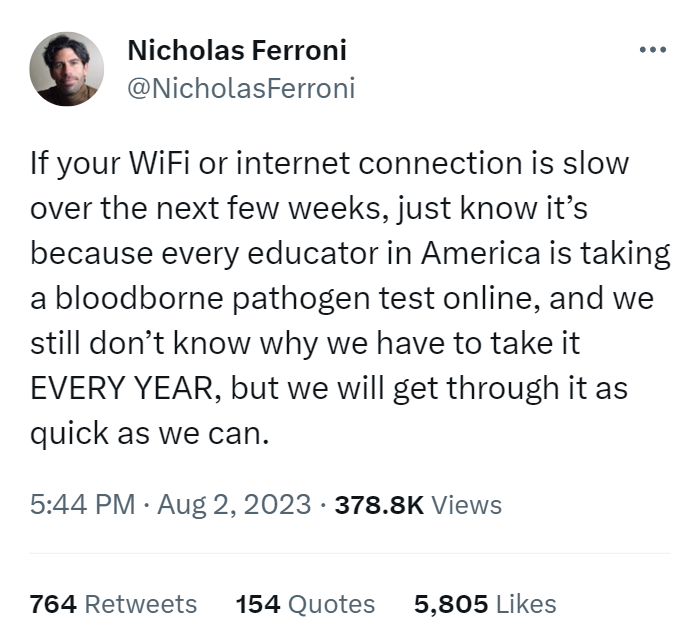How to start a tough conversation with your teacher
Teachers are bogged down by restrictions, regulations, and a huge amount of pointless busy work:

If you want a teacher to give you an extension on an assignment, they’ll be fine with that. It gives them more time to grade and it doesn’t cause any trouble.
If you ask a teacher for something that will take up their time/energy, you need to pitch yourself and your idea. Usually all you have to bring to the table is proof you care, but sometimes you'll have to do something small in exchange—not, like, buying them an expensive watch. Don’t bribe your teacher.
Here are some good (and bad) options.
Challenging your teacher to an arm wrestling match, winner gets extra credit
Challenging your history teacher to a map drawing contest from memory, winner gets to choose what you cover next class.
[in the subject line of an email] change the way u grade plz! so unfair, so ez 4 the other class way ez-er
Are you free to talk about ways to reduce student anxiety around grading? I had a few ideas in mind but I don't know half of the challenges you're facing as a teacher - I want to hear your side of the story.
Loudly groaning
"I have feedback on ways the class could be a better learning environment, but I’m afraid to come off as rude or judgey.
Is there a way I could earn your trust first so both of us are more comfortable with suggestions? Maybe you have some feedback for me I could try to use first, or anything I could read or watch to understand the obstacles you face as a teacher?"
Get the idea? Awesome, choose a real scenario and get a play-by-play strategy:
A lot of these scenarios force you to balance listening patiently and firmly asserting yourself. That can feel... hard. But we promise it's like riding a bike: once you practice a couple times (maybe play a few of these scenarios out with friends, or try the waffle game!) it'll be so, so natural :)
Have feedback on this page? Reach out! We love educator and student input.